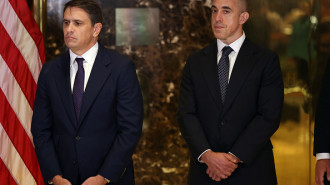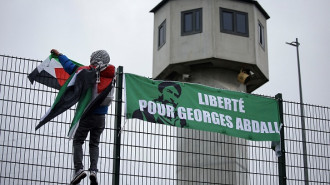Russia accuses US of protecting extremist group in Syria
In an interview aired on BBC World News on Friday, Lavrov said Washington had vowed to "take as a priority an obligation to separate the opposition" from the former al-Qaeda affiliate once known as al-Nusra Front, but that it had not done so.
"We have more and more reasons to believe that from the very beginning the plan was to spare Nusra and to keep it just in case for Plan B or stage two, when it would be time to change the regime," Lavrov said.
Moscow has repeatedly accused the US of failing on its commitment to persuade rebel forces to distance themselves from extremist groups such as al-Nusra, which changed its name to Fateh al-Sham Front in July after renouncing its ties to al-Qaeda.
A short-lived truce brokered by Moscow and Washington earlier this month could have led the two countries to coordinate strikes against militants, but the deal fell apart as both sides blamed each other for its failure.
Moscow has been accused of indiscriminately bombing Aleppo's opposition-controlled east as it helps an assault currently being conducted by Syrian government troops to capture all of the country's second city.
The UN has warned that a humanitarian catastrophe is unfolding in Aleppo unlike any witnessed so far in Syria's five-year war, which has claimed more than 300,000 lives.
Russia has said it would continue its Syrian bombing campaign in spite of US warnings that Washington would suspend talks unless Moscow stopped its assault on Aleppo.
In a phone call with US Secretary of State John Kerry on Friday, Lavrov stressed Moscow's "readiness to continue to consider additional possibilities" to work with the US on normalising the situation in Aleppo, Russia's foreign ministry said in a statement.
Lavrov also stressed Russia "remains open for dialogue with the US on all key issues" regarding Syria, the statement said.
The British-based Syrian Observatory for Human Rights said Friday that more than 9,300 people - including some 3,800 civilians - had been killed in a year of Russian air strikes in Syria in support of Assad.
Moscow quickly dismissed the claim, insisting its bombing campaign had prevented extremists from taking over in the war-torn country.







 Follow the Middle East's top stories in English at The New Arab on Google News
Follow the Middle East's top stories in English at The New Arab on Google News


![Aid Gaza [Getty]](/sites/default/files/styles/image_330x185/public/2010004231.jpeg?h=cb957c44&itok=NpHeiZFt)